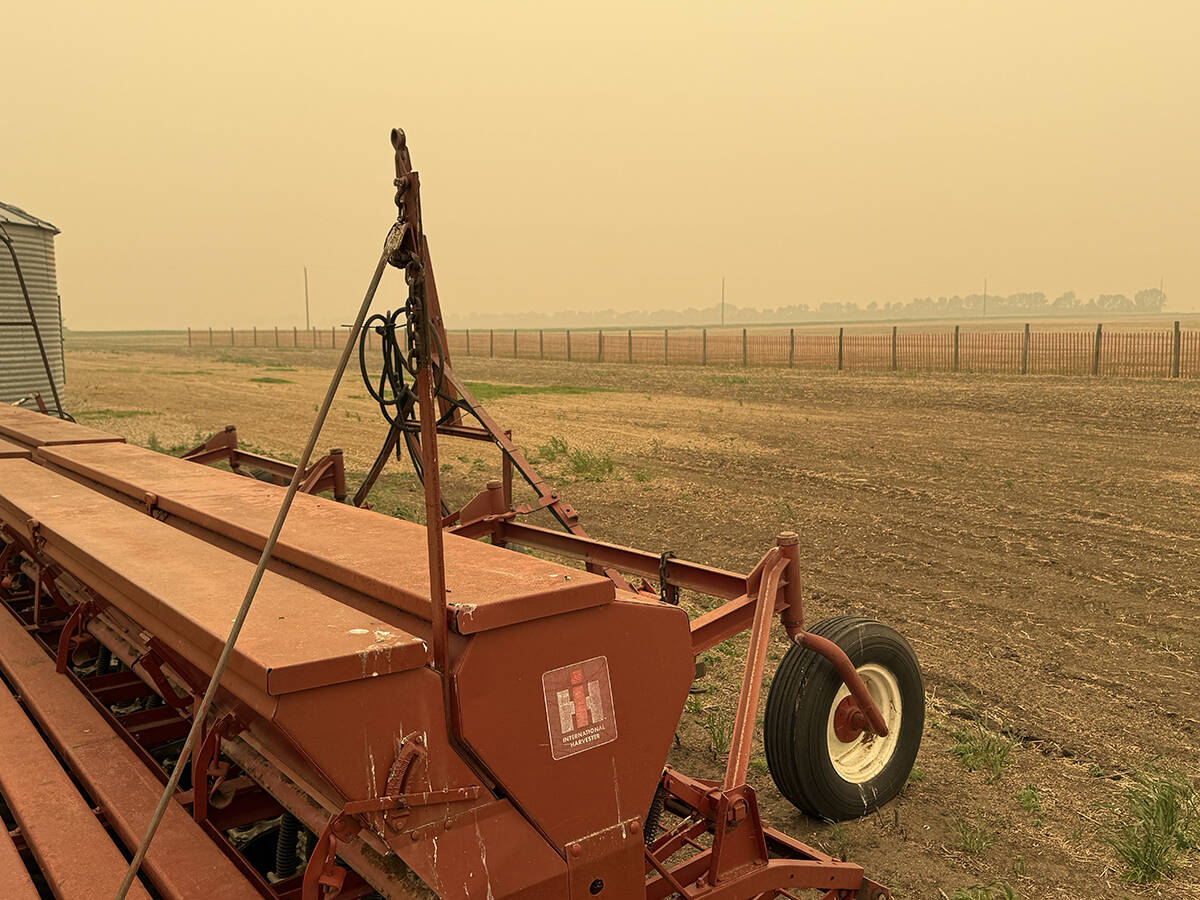Manitoba farmers are paying more than their fair share of school and provincial taxes, say members of a farm lobby group.
And if the government wants to encourage farmers to better adapt to life without the Crow transportation subsidy, Keystone Agricultural Producers believe farm land and buildings should be exempt from education taxes and provincial sales tax.
Bill Morningstar, who farms near Goodlands, said farmers are willing to pay their fair share of school taxes. But he showed KAP members some graphs indicating farmers in the southwest corner of the province pay three to 10 times more school tax than their counterparts in town.
Read Also

Wildfires have unexpected upside this year
One farmer feels smoke from nearby wildfires shrouded the July skies and protected his crop from the sun’s burning rays, resulting in more seeds per pod and more pods per plant.
“I just don’t think that’s fair.”
Morningstar said farmland accounts for $27 million, or six percent of the $540 million in property taxes, while residential property accounts for 54 percent, or $247 million.
If there are 10,000 farms in Manitoba, that works out to $2,700 per farm on average. But he said there are 192,000 dwelling units in the province, and each pays an average tax just under $1,300.
Taxes everywhere
Farmers pay tax on their homes too, meaning on average they pay $4,000, plus the tax on their farm buildings.
While six percent of total taxes may not sound like much, Morningstar said it’s too much to ask from farmers who have to pay the whole freight bill for moving grain, who face high input costs, and who have lost an important revenue insurance safety net.
Les Felsch, a farmer from Ridgeville, said the Manitoba Association of School Trustees wants to reinstate another provincial education levy from which farmers are now exempt.
Felsch estimates this would increases his taxes by 50 percent.
“We just think they’re way off base on this,” said Morningstar, who figures the levy would add an average of 10 percent to farmers’ taxes.
But Allan Chambers, who farms near Arnes, pointed out that school taxes have to come from somewhere. He said local officials are reluctant to put all the burden on homeowners.
So he suggested KAP work on alternative ways to gather the tax to present to governments instead of simply asking for their removal.
Glenn Young, who chairs KAP’s taxation committee, said he’s hopeful the government will announce in its spring budget that it will exempt farmers from paying provincial sales tax on items for building and maintaining livestock operations.
He noted farmers in neighboring provinces can expand operations without having to budget for the tax.
“I’m not going to be so presumptuous as to say what the (finance) minister is going to do, but I do think you’ll see some movement on this,” Young told farmers.
KAP recommended the exemption list include buildings, hardware, electrical and plumbing supplies, silos, fuel equipment, safety equipment, and disinfectants and cleaning supplies.
KAP also recommended cars, trucks, trailers, truck boxes and other vehicles be exempt, as well as parts, repairs and service.














